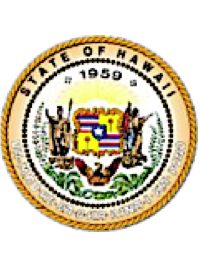
A handful of Democratic state senators in Hawaii have quietly defied a decision by their legislative body to abandon opening prayers. On January 26, a week after the 25-member senate caved in to threats by the American Civil Liberties Union (ACLU) to force a halt to the prayers, the nine Democrats “held hands, bowed their heads, and sought God’s blessing, signaling that they’ll still pray despite last week’s vote abandoning official invocations,” reported onenewsnow.com.
The ACLU had earlier sent a letter to the senate warning that its opening invocations violated the U.S. Constitutions supposed separation of church and state, noting that the prayers often referenced the name of Jesus Christ more than the deities of other religions. The group argues that referencing any deity is a violation the First Amendment.
Those who took part in the impromptu gathering insisted that prayer is important in their line of work. Its nice to start off the day with a prayer because we need all the help we can get, observed Senator Mike Gabbard.
While Senate President Shan Tsutsui didnt participate in the informal prayer, he nonetheless defended the right of other legislators to do so. Its a matter of free speech, he said. We do encourage members, at their own will and desire, to go ahead and engage in prayer.
The move by the state senate the first legislative body in the nation to put a stop to opening invocations came after a citizen had complained about the practice to the ACLU. The liberal activist group sent a letter warning that the lawmakers were violating the First Amendments supposed church-state separation clause, prompting the state attorney general to advise that the traditional prayers likely wouldnt survive an ACLU lawsuit.
Hawaii’s House of Representatives is also considering a ban on opening invocations, but as this years legislative session began it was still opened with prayer, though an appeal to any specific religious deity was carefully avoided.
Although a senate committee formed to evaluate the issue recommended that the body continue with strictly non-sectarian prayers that avoided referring to any deities, the lawmakers ultimately decided to scrap prayers altogether.
The senates lone Republican, Sam Slom, had appealed to the body to make prayer voluntary rather than banning it completely, urging that the senate must stand for something and not back away when there are challenges by individuals or organizations who make it their point nationally to have this as an objective. As intelligent as we may be, we can still call on someone higher to help us and guide us.
The Alliance Defense Fund (ADF), a conservative legal group that often defends individuals and groups against assaults by the ACLU, sounded off about the senates decision, saying that caving in to the ACLUs demands was not the right response. They continue to threaten governments with lawsuits to try to force them into capitulating to their view of society, declared Brett Harvey, an ADF attorney. Governments should take a stand for this cherished historical practice.
In 2008 the Indiana House temporarily stopped opening prayers after the ACLU filed a lawsuit against the body, but began the prayers again after a federal appeals court overturned a lower court ruling.



